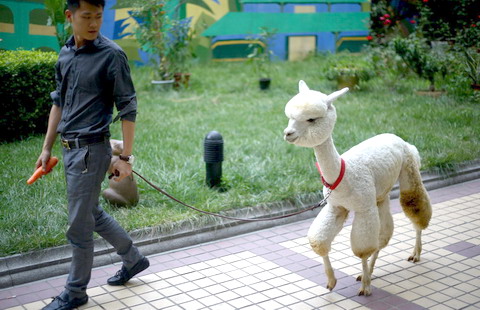
Authorities say roughly 90 million sold before 11 arrested in Zhejiang
More than 90 million empty capsules made of toxic gelatin were sold by a company in Zhejiang province, and police are trying to locate their whereabouts.
The procuratorate of Ninghai county in Ningbo announced on Monday that authorities had arrested 11 people involved in the production and sale of the capsules, which can be filled with drugs, herbal supplements or other substances.
Police, together with food and drug administration officials, busted a gang, allegedly headed by 56-year-old Pan Bohai, in late July in Ninghai. They seized 440,000 capsules and more than 800 kg of semi-finished products and materials at a rented workshop.
Pan once worked at a pharmaceutical company that produced empty capsules. After the company's bankruptcy, Pan took capsule-producing equipment and gathered 10 friends to start a business producing capsules.
In February, the 11 individuals began to manufacture capsules with industrial gelatin containing chromium above safe levels. About 90 million toxic capsules were produced and sold before they were detained, the police said.
Zhou Wuguang, an official in the county's publicity department, said Pan and the 10 others were caught at the scene producing the capsules.
The authorities are trying to determine the locations of capsules already sold.
"The capsules were produced in Ninghai and transported to Xinchang in Shao-xing to be sold. Hopefully, police can retrieve as many capsules as possible," Zhou said.
Pan's hometown, Ru'ao township in Xinchang, was once a capsule-producing center of the country. By 2012, the township was capable of producing 100 billion capsules annually, accounting for one-third of China's total annual production, according to China Central Television.
In April 2012, some factories in Ru'ao were found producing capsules with industrial gelatin. Nine people were arrested and another 45 were detained.
"Some companies took undesirable measures in their business operations in order to make huge profits," said Sun Zhongshi, an expert with the Drug Evaluation Center of the State Food and Drug Administration. "Authorities should intensify their efforts to supervise and manage such companies, and increase punishments," he said.
Wang Hongyi contributed to this story.
yanyiqi@chinadaily.com.cn








